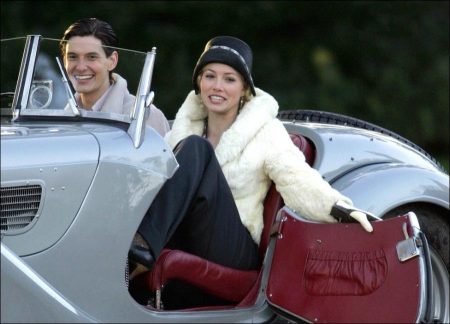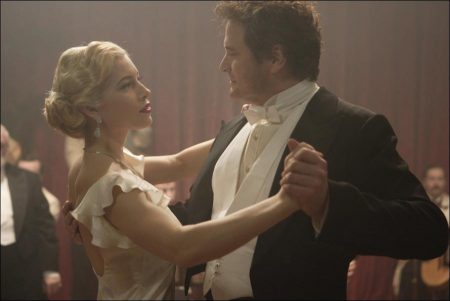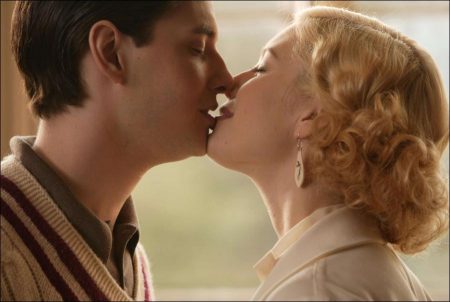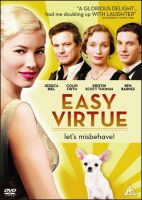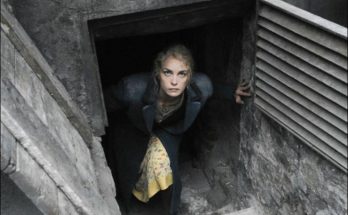Tagline: Let’s misbehave.
Easy Virtue movie storyline. A young Englishman marries a glamorous American. When he brings her home to meet the parents, she arrives like a blast from the future – blowing their entrenched British stuffiness out the window. The twenties have roared… the thirties have yet to swing. John Whittaker, a young Englishman, falls madly in love with Larita, a sexy and glamorous American woman, and they marry impetuously. However when the couple returns to the family home, his mother Mrs Whittaker has an instant allergic reaction to her new daughter-in-law.
Larita tries her best to fit in but fails to tiptoe through the minefield laid by her mother-in-law. Larita quickly realizes Mrs Whittaker’s game and sees that she must fight back if she’s not going to lose John. A battle of wits ensues and sparks soon fly. Mrs Whittaker manipulates every situation to undermine her, while Larita remains frustratingly calm and engineers sassy counter attacks. Before long, Mrs Whittaker’s manipulation starts to work on John and Larita feels their love is in danger of slipping away. In a grand finale, where the secrets from Larita’s past are revealed, she finally makes a break for freedom from the suffocating house.
Easy Virtue, the lavish adaptation of Noel Coward’s play, was completed in seven weeks of principal photography at the end of February 2008, and was shot entirely on location in the UK in magnificent stately homes which include Flintham Hall in Nottingham, Englefield House, near Reading in Berkshire, and Wimpole Hall in Cambridgeshire.
Easy Virtue stars American actress Jessica Biel playing Larita, the avant-garde young woman who takes the Whittaker family by storm; Colin Firth as the war-weary head of the household Mr. Whittaker; Kristin Scott Thomas as the stoic but neurotic wife Mrs. Whittaker, and Ben Barnes as Larita’s new husband John Whittaker. The film also features Kris Marshall as Furber, the Whittaker’s butler; Katherine Parkinson as eldest daughter Marion and Kimberley Nixon playing the youngest of the family, the impressionable Hilda. Easy Virtue is directed by Australian Stephan Elliott, and is produced by Barnaby Thompson, Joe Abrams and James D. Stern. Easy Virtue is written by Elliott and Sheridan Jobbins, based on the Noel Coward play of the same name.
Background
It’s discouraging to think how many people are shocked by honesty and how few by deceit.” (Noel Coward)
Noel Coward wrote ‘Easy Virtue’ in 1924 when he was just 23 and, while it was one of his least known works, it played to considerable success. A young Alfred Hitchcock produced a silent film version of the play in 1928. As a well-known theatre critic once wrote of the production when staged at the Chichester Coward Centenary Festival, “’Easy Virtue’ is a marvellous reminder of Coward’s ability to dynamite from within the high society he is generally assumed to have been celebrating. This is a savage attack on the hypocrisy of the early 1920s and the way in which it used Victorian standards, already outdated by war, to destroy the lives of those it could not control. The result is a psychological study of sexual repression and guilt and revenge, as the old certainties crumble at the advance of the jazz age.”
“I have loved Coward’s work ever since having the good fortune to see Maggie Smith in the 1974 production of PRIVATE LIVES, directed by John Gielgud;” begins producer Joe Abrams, and while Coward is best known for the sophisticated wit and style of his comedies such as PRIVATE LIVES, DESIGN FOR LIVING, and HAY FEVER, it is his dramatic writing that has been the basis of such award winning films as CAVALCADE, IN WHICH WE SERVE, and BRIEF ENCOUNTER. So, EASY VIRTUE was particularly attractive to me, and I was thrilled to be able to acquire the rights
“Obviously none of the wit of Coward’s dialogue could come through in the silent version,? Abrams adds, ?so Hitchcock had to emphasize the drama of the social conflict between the new and the old worlds of 1920?s England. For EASY VIRTUE today, the challenges and opportunities were not just to keep the conflict, but in the spirit of Coward, to build on it with comedy. I approached Barnaby Thompson because of his terrific work on two Oscar Wilde films, and was delighted that he shared my enthusiasm for what EASY VIRTUE could be to a modern audience.”
Producer Barnaby Thompson says “There is something very appealing about this story, which I believe is universal. It’s a story about a guy who meets a beautiful woman, they fall in love and marry and he brings her home to meet the family. So far so good you think, but the mother-in-law takes an instant dislike to the girl, and then it is about the sparks that fly thereafter… and we all have mothers-in-law,”
Dealing with the challenge of adapting Coward for modern audiences, Thompson credits co-writers Stephan Elliott and Sheridan Jobbins. “Coward tends to play it very hard and cold, that’s the nature of his comedy, and so the process of the adaptation was to make sure we care about the characters and give it a thoroughly contemporary feel. The significance of the work that was done on the script was to really build up the emotional landscape of the piece, so you realize that at the beginning it’s all fun and there are wonderfully barbed comments being thrown about, but actually it’s about a group of people who are fighting for their lives and it really matters what the outcome is. If the film succeeds, it will be a combination of Noel Coward’s ability of Stephan and Sheridan to make us care about the people themselves.”
Thompson discusses his choice of director: “Stephan is an experienced director, but had been away from the camera for quite a while, and so in a way he brought the kind of enthusiasm of a first-timer, combined with the fact that he has made several successful movies before. I always liked his sense of anarchy, and when I was looking around for someone to do this I just had a yen to have a director who could inject some irreverence, and Stephan came to mind. He brings an interesting and infectious spirit, and that was obvious on set by the way he drove things along, and everyone seemed to have a very good time during the shoot. That speaks well for him.”
“After famously skiing into a mountain in France in 2004 and breaking my back, pelvis and legs, which kept me off my feet for the best part of three years” begins Elliott, “I had a lot of time to think. I had previously decided I had had enough of the film industry. The accident experience gave me the kick-on I needed, and I was trying to think of ideas when Barnaby presented me with Noel Coward. My first thought was ‘why on earth are you bringing me Noel Coward?’ Period films really weren’t for me; I don’t think I have ever sat through an entire period film in my life!
But Barnaby said that was exactly the reason he was bringing it to me, and so I read it and thought, OK what’s in this? And that little sense of rebellion that’s in the piece, specifically with a modern girl like Larita being dragged into a period film and slowly going mad… is where I found myself as a writer. I thought, aha, I can actually have some fun with this. Of course I wasn’t allowed to do my standard farting jokes or put men in dresses, they had to restrain me a little,” he says laughing.
“We didn’t want to make a period film,” continues Elliott, “we wanted to make a modern film for modern audiences so we tried to give it a really contemporary voice, then the actors came along and immediately went into Coward mode. And I had to ask them to talk to me as they would normally, so we did eventually find a common voice. Also we have gone completely mad on the music, and we are doing some really extraordinary special effects which we are not used to seeing in a period film. .”
Talking about working with Stephan on the script, co-writer Sheridan Jobbins says: “Stephan is a very funny man. Mischievous. Devious. Mocking and self-deprecating. While Coward is synonymous with wit – he has a reputation for something a little broader! I pointed this out during our initial script conversation (while rolling around laughing and saying things like, ‘What? You? Write Noel Coward?’).
It turns out I inadvertently laid down the gauntlet to a man who respects Coward as one of the great 20th century observers. The original stage play is a melodrama, not one of Coward?s signature comedies. When we were first talking about how to find a way into the comedy without being too heavy handed, Stephan paraphrased Coward by saying, ‘Wit is a spice, not a sauce…’ and that lead to the defining style for our screenplay: Never try and out Coward Coward.”
Continue Reading and View the Theatrical Trailer
Easy Virtue (2009)
Directed by: Stephan Elliott
Starring: Jessica Biel, Ben Barnes, Kristin Scott Thomas, Colin Firth, Kimberley Nixon, Katherine Parkinson, Kris Marshall, Christian Brassington, Charlotte Riley, Jim McManus, Joanna Bacon
Screenplay by: Stephan Elliott
Production Design by: John Beard
Cinematography by: Martin Kenzie
Film Editing by: Sue Blainey
Costume Design by: Charlotte Walter
Set Decoration by: Niamh Coulter
Art Direction by: Mark Scruton
Music by: Marius De Vries
MPAA Rating: PG-13 for sexual content, brief partial nudity, and smoking throughout.
Distributed by:: Sony Pictures Classics
Release Date: May 22, 2009
Views: 152
